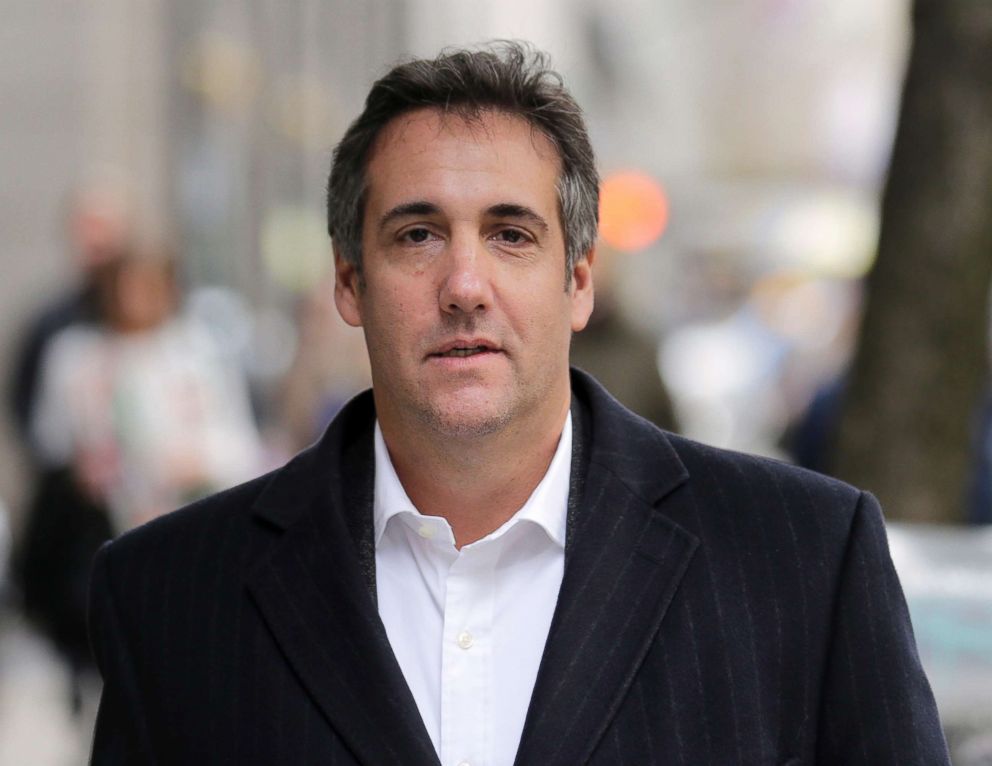Treasury stonewalling on demands for docs on Trump lawyer, Dem senator says
The documents deal with Michael Cohen's financial relationships.
A top Senate Democrat says the Treasury Department is refusing to turn over documents and information to Congress related to President Donald Trump’s former lawyer Michael Cohen and his consulting firm’s relationship with Swiss drug company Novartis and other possible clients.
Sen. Ron Wyden, D-Ore., the Ranking Member of the Senate Finance Committee investigating Cohen’s relationship with Novartis, said through a spokesperson Wednesday that Treasury is not cooperating with a request for information about Cohen and Novartis.
On May 11th, Wyden sent a letter to the Treasury's Financial Crimes Enforcement Network requesting reports from the agency on suspicious transactions - known as Suspicious Activity Reports - between Cohen's firm Essential Consultants and Novartis, and any other entities tied to the Swiss company.
“Treasury refuses to respond to our request, let alone provide key financial documents related to Cohen and Cohen’s business dealings with Novartis. There is no excuse for this kind of stonewalling,” Wyden's spokesperson Rachel McCleery said. “All other parties are engaging in the Committee’s inquiry.”

Wyden, who has placed a hold on Treasury nominee Isabel Patelunas as part of a long-running standoff with the department over Russia-related document requests, said in a statement that he's not ruling out blocking additional Treasury nominees.
In response to questions about Wyden's investigation, which is seeking to explore the relationship between Cohen and the Swiss pharmaceutical company, a Treasury spokesman said while the department generally communicates with congressional committees to be responsive to their requests it doesn't discuss specific requests related to committee investigations.
Novartis inked a $1.2 million contract with the president’s personal lawyer Michael Cohen in February 2017, after being connected by a third party, according to the company.
“In late 2016, after President Trump unexpectedly won the election, many corporations were looking for ways to better understand how the new administration would approach issues that concerned them and to identify the relevant individuals in the administration with whom to engage,” Novartis spokesman Eric Althoff said in a statement.
The agreement came at a crucial time: Novartis was lobbying the government on several fronts, and was months away from the successful approval of a breakthrough cancer drug, Kymriah.
Developed at the University of Pennsylvania – the product of a years-long partnership between Novartis and the university – the treatment for leukemia was hailed as a “living drug” that genetically alters individual patients own cells to fight cancer, and was initially offered at a list price of $475,000.
The company was also grappling with an unpredictable president. Trump left the industry confused about his plans for drug pricing, after a campaign where he appeared to side with Democrats by, among other positions, calling for Medicare to negotiate drug prices with manufacturers.
“The policy community in general was wondering what this president was going to do with drug prices,” Jack Hoadley, a health policy analyst at Georgetown University.
Novartis spent nearly $9 million lobbying the government in 2017 on a range of issues including taxes, Medicare reimbursements and intellectual property matters, according to lobbying records collected by the Center for Responsive Politics.
Ultimately, Novartis officials met with Cohen and determined he wouldn’t be able to help them in Washington, but decided against breaking the contract with him.
“While Mr. Cohen could identify some of the members of the new administration appointed to manage issues important to the pharmaceutical industry, he lacked the capability to advise us on the matters we contracted for,’ Althoff, the spokesman, said.
Jimenez, the former CEO who met with Cohen before contracting him to work with the company, told Bloomberg News Cohen had "oversold his abilities," but that the company risked "almost certain litigation" if they had tried to terminate the agreement.
Novartis has avoided any repercussions from its relationship with Cohen thus far. The Swiss attorney general has decided not to pursue criminal charges against the company in connection with the payments it made to Cohen, saying in a statement that it concluded there was insufficient evidence linking the payments to any official acts.
The company continues to cooperate with congressional investigators’ requests for information, according to a spokesman.




